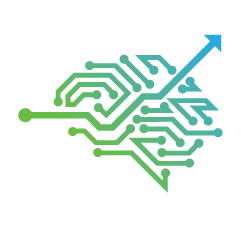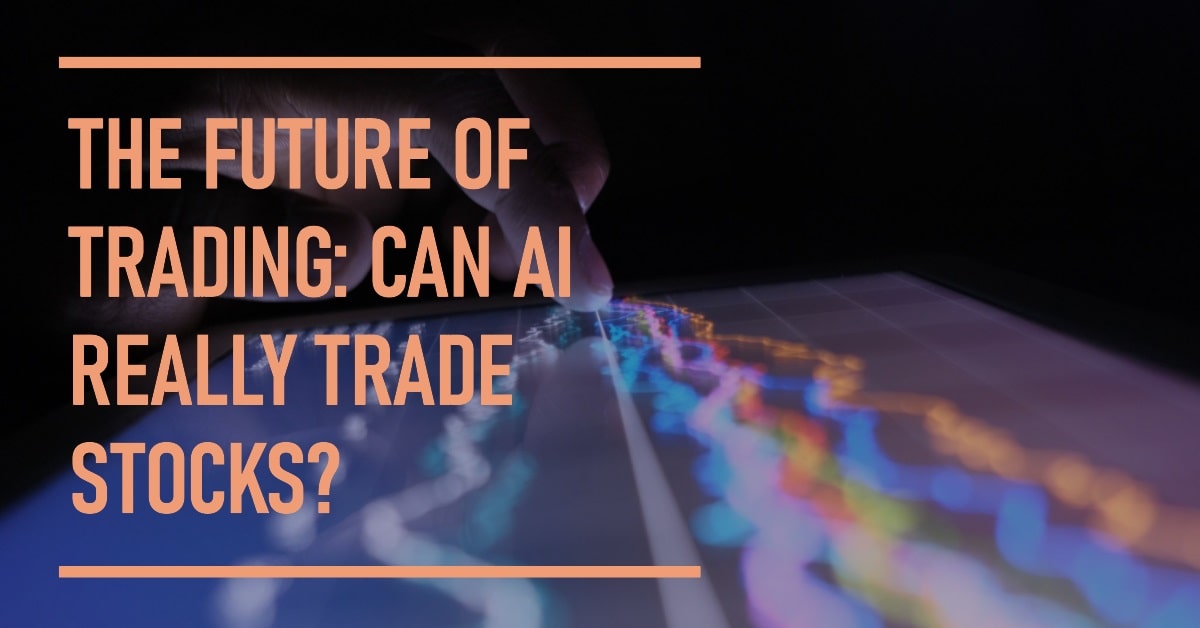Introduction
Artificial Intelligence (AI) has revolutionized various industries, and its impact on stock trading is no exception. With the ability to analyze vast amounts of data and make decisions based on complex algorithms, AI has the potential to enhance trading strategies and maximize returns. This has led to the development of AI-driven algorithms and systems that can trade stocks with speed and precision.
In this article, we will explore the role of AI in stock trading and its effectiveness in generating profits. We will delve into the advantages and risks of using AI-driven strategies, as well as examine the future of AI-driven investing. Whether you are a seasoned trader or a curious investor, understanding the capabilities and limitations of AI in stock trading can provide valuable insights into the evolving landscape of financial markets.
What is AI and Stock Trading?
Artificial Intelligence (AI) and stock trading have become closely intertwined in recent years. AI refers to the ability of machines or computer systems to perform tasks that would typically require human intelligence. Stock trading, on the other hand, involves buying and selling stocks in financial markets to generate profits.
AI-driven algorithms use advanced mathematical models and algorithms to analyze vast amounts of financial data and make predictions about future stock market movements. These algorithms can process data much faster and more efficiently than humans, allowing for quicker decision-making and potentially higher profits.
There are two main types of AI algorithms used in stock trading: rule-based and machine learning algorithms. Rule-based algorithms follow a set of predefined rules to make trading decisions. They are often based on technical analysis indicators, such as moving averages or momentum indicators.
Machine learning algorithms, on the other hand, are designed to learn from historical data and adapt their trading strategies accordingly. They can identify patterns and trends in the data that may not be obvious to humans and adjust their trading strategies based on these insights.
AI-driven algorithms can also take into account factors such as news sentiment analysis, social media trends, and other non-traditional data sources to make more informed trading decisions.
Overall, the use of AI in stock trading aims to improve the accuracy of predictions, increase trading efficiency, and reduce the impact of human emotions on decision-making.
However, it is important to note that AI-driven algorithms are not foolproof and can still make incorrect predictions. The stock market is highly unpredictable, and even the most sophisticated AI algorithms cannot guarantee consistent profits.
Are AI-driven Algorithms Useful in Trading?
Artificial Intelligence (AI) has revolutionized various industries, and stock trading is no exception. AI-driven algorithms have proven to be useful tools in the world of trading, offering valuable insights and automation capabilities that can enhance the decision-making process.
AI-driven algorithms are designed to analyze vast amounts of data and identify patterns and trends that may not be easily recognizable to human traders. This allows AI systems to make predictions and recommendations based on historical data, market trends, and other relevant factors.
One of the key advantages of using AI-driven algorithms in trading is their ability to process and analyze large volumes of data in real-time. This enables traders to quickly identify and act on profitable opportunities, as well as make informed decisions based on accurate and up-to-date information.
Moreover, AI algorithms are not influenced by human emotions or biases, which can often lead to irrational decision-making in the stock market. By removing these emotional factors, AI-driven systems can make objective and data-driven decisions based on predetermined parameters and rules.
Another advantage of using AI in trading is the ability to automate various aspects of the trading process. AI-driven systems can execute trades automatically based on predefined strategies, saving time and effort for traders. This automation also helps to eliminate human error and ensure consistent execution of trading strategies.
However, it is important to note that AI-driven algorithms are not infallible and do come with risks. While AI can analyze data and identify patterns, it cannot predict the future with certainty. Market conditions and other external factors can change rapidly, making it challenging for AI systems to adapt and respond effectively.
Furthermore, relying solely on AI for trading can lead to overreliance on technology and a lack of human oversight. It is crucial to have human traders monitor and evaluate the performance of AI systems, intervene when necessary, and ensure that trading strategies align with overall investment goals.
AI-driven Strategies and Advantages
Artificial intelligence (AI) has revolutionized various industries, and stock trading is no exception. With the emergence of advanced algorithms and machine learning techniques, AI-driven strategies have become increasingly popular in the financial markets. Here are some key advantages of using AI in stock trading:
Data Processing and Analysis
AI algorithms have the capability to process and analyze vast amounts of financial data in a fraction of the time it would take a human trader. By analyzing historical stock prices, market trends, company financials, and other relevant data, AI can identify patterns and make informed predictions about future market movements.
Eliminating Emotional Bias
Human traders often make decisions based on emotions, which can lead to impulsive and irrational trading choices. AI-driven algorithms, on the other hand, are not influenced by emotions. They rely solely on data and statistical analysis to make trading decisions, reducing the impact of human biases and improving overall trading performance.
Real-time Monitoring
AI-powered trading systems can continuously monitor the market, identify trading opportunities, and execute trades in real-time. This allows traders to take advantage of even the smallest market fluctuations and react quickly to changing market conditions.
Risk Management
AI can also help traders manage their risks more effectively. By analyzing historical data and market conditions, AI algorithms can identify potential risks and adjust trading strategies accordingly. This can help minimize losses and maximize profits.
Backtesting and Optimization
AI algorithms can be tested and optimized using historical data to determine their effectiveness before deploying them in the live market. This allows traders to fine-tune their strategies and improve their performance based on past market behavior.
Adaptability
The stock market is constantly evolving, with new trends and patterns emerging. AI algorithms have the ability to adapt and learn from new data, ensuring that trading strategies remain up-to-date and effective in changing market conditions.
Risks of Trading with AI
While there are many advantages to using AI-driven algorithms for stock trading, it is important to consider the potential risks involved. Here are some key risks to keep in mind:
Technical Issues
AI systems are not infallible and can experience technical glitches or failures. These issues can lead to incorrect trades or missed opportunities, which can result in financial losses.
Over-Reliance on Historical Data
AI algorithms rely heavily on historical data to make predictions and decisions. However, historical data may not always accurately reflect future market conditions, especially during periods of unprecedented events or volatility. As a result, relying solely on past data can lead to inaccurate predictions and poor investment decisions.
Lack of Human Judgment
AI-driven trading systems operate based on pre-defined rules and algorithms. While these systems are designed to be objective and logical, they may lack the ability to consider nuanced market factors or make subjective judgments that human traders can. This can limit their ability to adapt to changing market conditions or unexpected events.
Algorithmic Risks
AI algorithms are created by humans and are subject to biases or errors in their design. If the underlying algorithm is flawed or based on incorrect assumptions, it can lead to suboptimal trading strategies and financial losses.
Market Manipulation
AI-driven trading systems can potentially be manipulated by malicious actors who seek to exploit their algorithms. This can lead to market manipulation and artificial price movements, which can negatively impact both the AI system and other market participants.
Regulatory and Legal Risks
The use of AI in stock trading is subject to regulatory oversight and compliance. Failure to navigate these regulations properly can result in legal consequences and reputational damage.
The Future of AI-driven Investing
Artificial intelligence (AI)-driven investing has been gaining significant attention in recent years, and its future looks promising. As technology continues to advance and data becomes more accessible, AI has the potential to revolutionize the way we invest in the stock market.
One of the key advantages of AI-driven investing is its ability to analyze vast amounts of data quickly and efficiently. AI algorithms can process large datasets, identify patterns, and make predictions based on historical trends. This allows investors to make more informed decisions and potentially gain an edge in the market.
Furthermore, AI-driven algorithms can continuously learn and adapt to changing market conditions. These algorithms can analyze real-time data, news articles, social media sentiment, and other relevant information to identify investment opportunities or potential risks. By leveraging AI, investors can stay ahead of the curve and make timely trades.
Despite these risks, the future of AI-driven investing looks promising. As technology continues to evolve, AI algorithms will become more sophisticated and accurate in their predictions. Additionally, the availability of real-time data and advancements in natural language processing will further enhance the capabilities of AI-driven investing.
FinBrain Technologies
www.finbrain.tech
[email protected]
99 Wall St. #2023New York, NY 10005
Twitter • LinkedIn • Instagram • Facebook


Leave a Reply